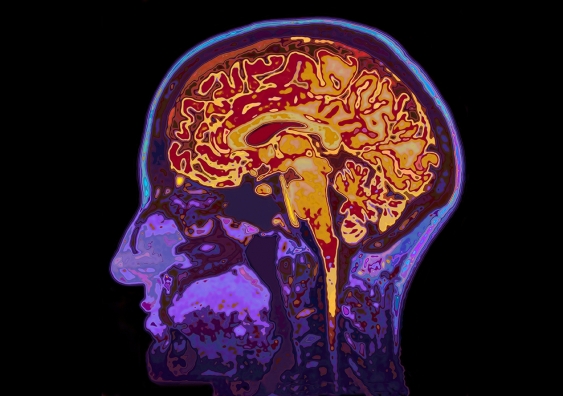We need to stop pretending AI is intelligent
-
Philosophers are so desperate for humans to be special.
How is outputting things based on things it has learned any different to what humans do?We observe things, we learn things and when required we do or say things based on the things we observed and learned. That's exactly what the AI is doing.
I don't think we have achieved "AGI" but I do think this argument is stupid.
No it’s really not at all the same. Humans don’t think according to the probabilities of what is the likely best next word.
-
ChatGPT 2 was literally an Excel spreadsheet.
I guesstimate that it's effectively a supermassive autocomplete algo that uses some TOTP-like factor to help it produce "unique" output every time.
And they're running into issues due to increasingly ingesting AI-generated data.
Get your popcorn out!

I really hate the current AI bubble but that article you linked about "chatgpt 2 was literally an Excel spreadsheet" isn't what the article is saying at all.
-
Artificial Intelligent is supposed to be intelligent.
For the record, AI is not supposed to be intelligent.
It just has to appear intelligent. It can be all smoke-and-mirrors, giving the impression that it's smart enough - provided it can perform the task at hand.
That's why it's termed artificial intelligence.
The subfield of Artificial General Intelligence is another story.
The field of artificial intelligence has also made incredible strides in the last decade, and the decade before that. The field of artificial general intelligence has been around for something like 70 years, and has made a really modest amount of progress in that time, on the scale of what they're trying to do.
-
Philosophers are so desperate for humans to be special.
How is outputting things based on things it has learned any different to what humans do?We observe things, we learn things and when required we do or say things based on the things we observed and learned. That's exactly what the AI is doing.
I don't think we have achieved "AGI" but I do think this argument is stupid.
How is outputting things based on things it has learned any different to what humans do?
Humans are not probabilistic, predictive chat models. If you think reasoning is taking a series of inputs, and then echoing the most common of those as output then you mustn't reason well or often.
If you were born during the first industrial revolution, then you'd think the mind was a complicated machine. People seem to always anthropomorphize inventions of the era.
-
I really hate the current AI bubble but that article you linked about "chatgpt 2 was literally an Excel spreadsheet" isn't what the article is saying at all.
Fine, *could literally be.
-
The field of artificial intelligence has also made incredible strides in the last decade, and the decade before that. The field of artificial general intelligence has been around for something like 70 years, and has made a really modest amount of progress in that time, on the scale of what they're trying to do.
The field of artificial general intelligence has been around for something like 70 years, and has made a really modest amount of progress in that time, on the scale of what they're trying to do.
I daresay it would stay this way until we figure out what intelligence is.
-
Thank You! Yes!
So ... A-not-I? AD? What do we call it? LLM seems too specialised?
Word guessing machine.
-
We are constantly fed a version of AI that looks, sounds and acts suspiciously like us. It speaks in polished sentences, mimics emotions, expresses curiosity, claims to feel compassion, even dabbles in what it calls creativity.
But what we call AI today is nothing more than a statistical machine: a digital parrot regurgitating patterns mined from oceans of human data (the situation hasn’t changed much since it was discussed here five years ago). When it writes an answer to a question, it literally just guesses which letter and word will come next in a sequence – based on the data it’s been trained on.
This means AI has no understanding. No consciousness. No knowledge in any real, human sense. Just pure probability-driven, engineered brilliance — nothing more, and nothing less.
So why is a real “thinking” AI likely impossible? Because it’s bodiless. It has no senses, no flesh, no nerves, no pain, no pleasure. It doesn’t hunger, desire or fear. And because there is no cognition — not a shred — there’s a fundamental gap between the data it consumes (data born out of human feelings and experience) and what it can do with them.
Philosopher David Chalmers calls the mysterious mechanism underlying the relationship between our physical body and consciousness the “hard problem of consciousness”. Eminent scientists have recently hypothesised that consciousness actually emerges from the integration of internal, mental states with sensory representations (such as changes in heart rate, sweating and much more).
Given the paramount importance of the human senses and emotion for consciousness to “happen”, there is a profound and probably irreconcilable disconnect between general AI, the machine, and consciousness, a human phenomenon.
Super duper shortsighted article.
I mean, sure, some points are valid. But there's not just programmers involved, other professions such as psychologists and Philosophers and artists, doctors etc. too.
And I agree AGI probably won't emerge from binary systems. However... There's quantum computing on the rise. Latest theories of the mind and consciousness discuss how consciousness and our minds in general also appear to work with quantum states.
Finally, if biofeedback would be the deciding factor.. That can be simulated, modeled after a sample of humans.
The article is just doomsday hoo ha, unbalanced.
Show both sides of the coin...
-
Good luck. Even David Attenborrough can't help but anthropomorphize. People will feel sorry for a picture of a dot separated from a cluster of other dots.
The play by AI companies is that it's human nature for us to want to give just about every damn thing human qualities.
I'd explain more but as I write this my smoke alarm is beeping a low battery warning, and I need to go put the poor dear out of its misery.I’m still sad about that dot.

-
We are constantly fed a version of AI that looks, sounds and acts suspiciously like us. It speaks in polished sentences, mimics emotions, expresses curiosity, claims to feel compassion, even dabbles in what it calls creativity.
But what we call AI today is nothing more than a statistical machine: a digital parrot regurgitating patterns mined from oceans of human data (the situation hasn’t changed much since it was discussed here five years ago). When it writes an answer to a question, it literally just guesses which letter and word will come next in a sequence – based on the data it’s been trained on.
This means AI has no understanding. No consciousness. No knowledge in any real, human sense. Just pure probability-driven, engineered brilliance — nothing more, and nothing less.
So why is a real “thinking” AI likely impossible? Because it’s bodiless. It has no senses, no flesh, no nerves, no pain, no pleasure. It doesn’t hunger, desire or fear. And because there is no cognition — not a shred — there’s a fundamental gap between the data it consumes (data born out of human feelings and experience) and what it can do with them.
Philosopher David Chalmers calls the mysterious mechanism underlying the relationship between our physical body and consciousness the “hard problem of consciousness”. Eminent scientists have recently hypothesised that consciousness actually emerges from the integration of internal, mental states with sensory representations (such as changes in heart rate, sweating and much more).
Given the paramount importance of the human senses and emotion for consciousness to “happen”, there is a profound and probably irreconcilable disconnect between general AI, the machine, and consciousness, a human phenomenon.
I think most people tend to overlook the most obvious advantages and are overly focused on what is supposed to be and marketed as.
No need to think how to feed a thing into google to get a decent starting point for reading. No finding the correct terminology before finding the thing you are looking for. Just ask like you would ask a knowledgeable individual and you get an overview of what you wanted to ask in the first place.
Discuss a little to get the options and then start reading and researching the everliving shit out of them to confirm all the details.
-
We are constantly fed a version of AI that looks, sounds and acts suspiciously like us. It speaks in polished sentences, mimics emotions, expresses curiosity, claims to feel compassion, even dabbles in what it calls creativity.
But what we call AI today is nothing more than a statistical machine: a digital parrot regurgitating patterns mined from oceans of human data (the situation hasn’t changed much since it was discussed here five years ago). When it writes an answer to a question, it literally just guesses which letter and word will come next in a sequence – based on the data it’s been trained on.
This means AI has no understanding. No consciousness. No knowledge in any real, human sense. Just pure probability-driven, engineered brilliance — nothing more, and nothing less.
So why is a real “thinking” AI likely impossible? Because it’s bodiless. It has no senses, no flesh, no nerves, no pain, no pleasure. It doesn’t hunger, desire or fear. And because there is no cognition — not a shred — there’s a fundamental gap between the data it consumes (data born out of human feelings and experience) and what it can do with them.
Philosopher David Chalmers calls the mysterious mechanism underlying the relationship between our physical body and consciousness the “hard problem of consciousness”. Eminent scientists have recently hypothesised that consciousness actually emerges from the integration of internal, mental states with sensory representations (such as changes in heart rate, sweating and much more).
Given the paramount importance of the human senses and emotion for consciousness to “happen”, there is a profound and probably irreconcilable disconnect between general AI, the machine, and consciousness, a human phenomenon.
People who don't like "AI" should check out the newsletter and / or podcast of Ed Zitron. He goes hard on the topic.
-
I think most people tend to overlook the most obvious advantages and are overly focused on what is supposed to be and marketed as.
No need to think how to feed a thing into google to get a decent starting point for reading. No finding the correct terminology before finding the thing you are looking for. Just ask like you would ask a knowledgeable individual and you get an overview of what you wanted to ask in the first place.
Discuss a little to get the options and then start reading and researching the everliving shit out of them to confirm all the details.
Agreed.
When I was a kid we went to the library. If a card catalog didn't yield the book you needed, you asked the librarian. They often helped. No one sat around after the library wondering if the librarian was "truly intelligent".
These are tools. Tools slowly get better. Is a tool make life easier or your work better, you'll eventually use it.
Yes, there are woodworkers that eschew power tools but they are not typical. They have a niche market, and that's great, but it's a choice for the maker and user of their work.
-
Steve Gibson on his podcast, Security Now!, recently suggested that we should call it "Simulated Intelligence". I tend to agree.
I’ve taken to calling it Automated Inference
-
Good luck. Even David Attenborrough can't help but anthropomorphize. People will feel sorry for a picture of a dot separated from a cluster of other dots.
The play by AI companies is that it's human nature for us to want to give just about every damn thing human qualities.
I'd explain more but as I write this my smoke alarm is beeping a low battery warning, and I need to go put the poor dear out of its misery.This is the current problem with "misalignment". It's a real issue, but it's not "AI lying to prevent itself from being shut off" as a lot of articles tend to anthropomorphize it. The issue is (generally speaking) it's trying to maximize a numerical reward by providing responses to people that they find satisfactory. A legion of tech CEOs are flogging the algorithm to do just that, and as we all know, most people don't actually want to hear the truth. They want to hear what they want to hear.
LLMs are a poor stand in for actual AI, but they are at least proficient at the actual thing they are doing. Which leads us to things like this, https://www.youtube.com/watch?v=zKCynxiV_8I
-
Steve Gibson on his podcast, Security Now!, recently suggested that we should call it "Simulated Intelligence". I tend to agree.
Pseudo-intelligence
-
Super duper shortsighted article.
I mean, sure, some points are valid. But there's not just programmers involved, other professions such as psychologists and Philosophers and artists, doctors etc. too.
And I agree AGI probably won't emerge from binary systems. However... There's quantum computing on the rise. Latest theories of the mind and consciousness discuss how consciousness and our minds in general also appear to work with quantum states.
Finally, if biofeedback would be the deciding factor.. That can be simulated, modeled after a sample of humans.
The article is just doomsday hoo ha, unbalanced.
Show both sides of the coin...
Honestly I don't think we'll have AGI until we can fully merge meat space and cyber space. Once we can simply plug our brains into a computer and fully interact with it then we may see AGI.
Obviously we're not where near that level of man machine integration, I doubt we'll see even the slightest chance of it being possible for at least 10 years and the very earliest. But when we do get there it's a distinct chance that it's more of a Borg situation where the computer takes a parasitic role than a symbiotic role.
But by the time we are able to fully integrate computers into our brains I believe we will have trained A.I. systems enough to learn by interaction and observation. So being plugged directly into the human brain it could take prior knowledge of genome mapping and other related tasks and apply them to mapping our brains and possibly growing artificial brains to achieve self awareness and independent thought.
Or we'll just nuke ourselves out of existence and that will be that.
-
Steve Gibson on his podcast, Security Now!, recently suggested that we should call it "Simulated Intelligence". I tend to agree.
reminds me of Mass Effect's VI, "virtual intelligence": a system that's specifically designed to be not truly intelligent, as AI systems are banned throughout the galaxy for its potential to go rogue.
-
We are constantly fed a version of AI that looks, sounds and acts suspiciously like us. It speaks in polished sentences, mimics emotions, expresses curiosity, claims to feel compassion, even dabbles in what it calls creativity.
But what we call AI today is nothing more than a statistical machine: a digital parrot regurgitating patterns mined from oceans of human data (the situation hasn’t changed much since it was discussed here five years ago). When it writes an answer to a question, it literally just guesses which letter and word will come next in a sequence – based on the data it’s been trained on.
This means AI has no understanding. No consciousness. No knowledge in any real, human sense. Just pure probability-driven, engineered brilliance — nothing more, and nothing less.
So why is a real “thinking” AI likely impossible? Because it’s bodiless. It has no senses, no flesh, no nerves, no pain, no pleasure. It doesn’t hunger, desire or fear. And because there is no cognition — not a shred — there’s a fundamental gap between the data it consumes (data born out of human feelings and experience) and what it can do with them.
Philosopher David Chalmers calls the mysterious mechanism underlying the relationship between our physical body and consciousness the “hard problem of consciousness”. Eminent scientists have recently hypothesised that consciousness actually emerges from the integration of internal, mental states with sensory representations (such as changes in heart rate, sweating and much more).
Given the paramount importance of the human senses and emotion for consciousness to “happen”, there is a profound and probably irreconcilable disconnect between general AI, the machine, and consciousness, a human phenomenon.
That headline is a straw man, and the article really argues on General AI, which also has consciousness.
The current state of AI is definitely intelligent, but it's not GAI.
Bullshit headline. -
No it’s really not at all the same. Humans don’t think according to the probabilities of what is the likely best next word.
No you think according to the chemical proteins floating around your head. You don't even know he decisions your making when you make them.
You're a meat based copy machine with a built in justification box.
-
Steve Gibson on his podcast, Security Now!, recently suggested that we should call it "Simulated Intelligence". I tend to agree.
I love that. It makes me want to take it a step further and just call it "imitation intelligence."







